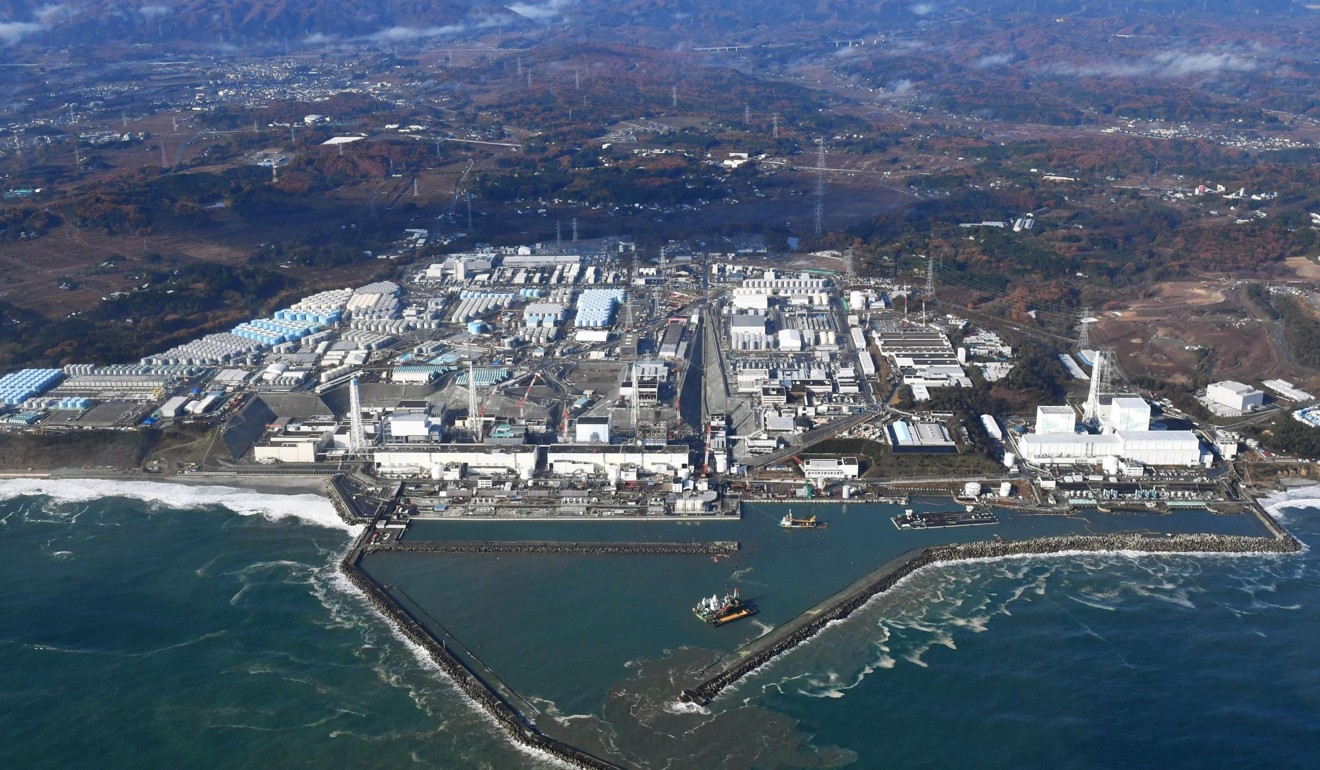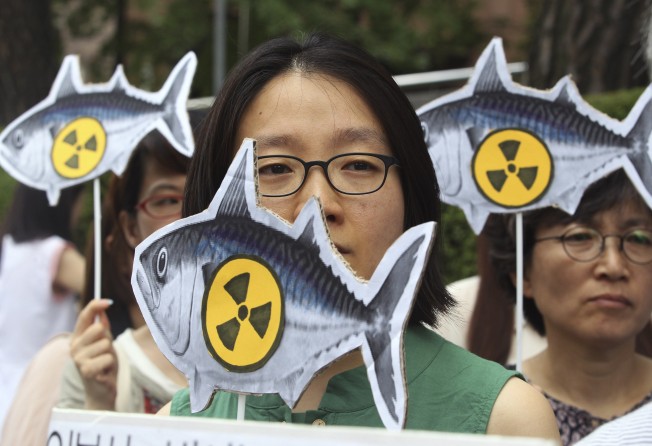
Japan claims food products from Fukushima are safe but South Korea isn’t buying it
- Japanese foreign minister summoned Seoul’s ambassador to Tokyo
- Even in Japan, there is widespread mistrust of government’s assessment

Japan’s foreign minister on Friday summoned the South Korean ambassador to express Tokyo’s disappointment at Seoul’s refusal to lift a ban on imports of fishery products from northeast Japan, imposed after the March 2011 earthquake that destroyed the Fukushima Daiichi nuclear plant.
Lee Soo-hun was summoned to the ministry after the World Trade Organisation’s (WTO) appellate body for dispute settlement ruled on Thursday that Seoul was within its rights to ban fishery products from eight prefectures.
Tokyo filed a complaint with the WTO in August 2015, claiming the ban was too strict and contravened free trade rules. The dispute settlement panel sided with Tokyo in February 2018, although this latest decision overturns that ruling. The panel is the highest body for dispute settlement so Japan cannot appeal any further. South Korea has welcomed the decision and reiterated it will keep the ban in place.
“The government has been making all-out efforts to follow the principle of making the health and safety of the people a priority and the government highly appraises the WTO’s decision,” the Ministry of Trade, Investment and Energy said in a statement.
The Japanese government was less happy with the outcome, describing it as “extremely regrettable”.
“Even though the ruling did not acknowledge that South Korea’s measures comply with WTO rules, it is extremely regrettable that Japan’s argument was not approved,” the Foreign Ministry said in a statement. “There is no change in Japan’s position of demanding that South Korea lift all the restrictions and we will pursue this via talks with South Korea.”

During his meeting with Lee, Japanese Foreign Minister Taro Kono declared Japanese food products have been scientifically proven to be safe and said it was “very disappointing” South Korea had not rescinded the ban.
In Iwate Prefecture, northeastern Japan, Mikio Morishita, 69, who runs a fish processing company, bemoaned the difficulty of regaining consumer trust.
“Although food products [from the disaster-hit areas] are safe, we have yet to dispel bad perceptions [among consumers]. The ruling is unfortunate because it suggests the world does not have a positive image” of items from Fukushima and its vicinities, Morishita said.
However, even in Japan, there is widespread scepticism regarding the Japanese government’s assessment.
“I live here and don’t eat anything from that area,” one poster wrote on the JapanToday website. “It’s a sad fact because of all the lies the government has told us.” Another added: “Absolutely any sane nation should be banning these products. How is something so logical even up for debate?”
I don’t think that people should simply believe everything that any government tells them
The sentiment was echoed by Kanako Hosomura, a housewife from Yokohama who was on her way to the supermarket for her weekly shopping trip.
“I feel really sorry for the fishermen and farmers of that part of Japan, but I do look at where the food I buy in the supermarket came from,” she said. “I guess it’s just a habit that began in 2011 and I think a lot of my friends do the same. It’s not so much that I do not trust the government, it’s more that you just cannot be too careful, especially when you have young children.”
Kevin Short, a naturalist and cultural anthropologist at the Tokyo University of Information Sciences, noted the lack of trust in the Japanese government’s statistics and data on radiation levels in affected parts of the country.
“The government keeps telling us that everything is safe, but I would personally like independent verification of anything that they say,” he said. “I don’t think that people should simply believe everything that any government tells them, particularly if any report only presents conclusions without the raw data and how those conclusions were reached.
“We need to be able to double-check their figures because the Japanese government contracts out research to private companies which are then indebted to the government and understand that the objective of their task is to provide the statistics and scientific evidence to support the position that the government wants to promote.”
Additional reporting by Kyodo